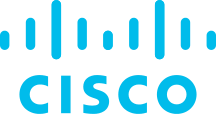Schedule a Webex meeting with Cisco’s dedicated retirement planning consultant
No matter how much you earn, you can make Roth 401(k) contributions to your Cisco 401(k). Are Roth 401(k) contributions right for you? Here’s what you need to know.
Roth 401(k) contributions may offer tax-free retirement income.
Roth 401(k) contributions give you a chance to keep more of your savings for yourself, because Roth 401(k) dollars (including any related earnings) are tax-free for a qualified withdrawal.2 Below are some reasons you may want to consider adding some Roth 401(k) contributions to the mix.


Crunch the numbers
You pay taxes on your contributions now (while you are working) rather than later (when you’re retired). So if you expect your income or tax rate to increase in the future, paying taxes on those contributions now affects your take-home pay, but could save you more on taxes later.
Anyone, regardless of income level, can make Roth 401(k) contributions to the Cisco 401(k).
Your Roth 401(k) contributions are eligible to receive the Cisco match.

Look ahead to the possibilities.
With Roth 401(k) contributions, you have a chance to manage distributions from the 401(k) plan tax-free.
Roth 401(k) allows you to leave potentially more tax-free money to your heirs.
Your 401(k) requires you to begin taking required minimum distributions at age 72. But Roth IRAs don’t have this requirement for their original owners. If you think you won’t need the Roth money in your 401(k), you can roll it over to a Roth IRA and keep your money working.
1 In 2023, you can contribute up to the $22,500 limit for pretax and/or Roth 401(k) contributions, or up to $30,000 if you’re 50 or older.
2 In general, Roth distributions are federally tax-free and penalty free when withdrawn at least five years from the first day of the year in which you made your first Roth contribution and one of the following conditions is met: age 59½, disability or death.
3 In 2023, your ability to contribute to a Roth IRA begins to phase out when your modified adjusted gross income reaches $144,000 if you are a single filer and $214,000 if you are married filing jointly.
